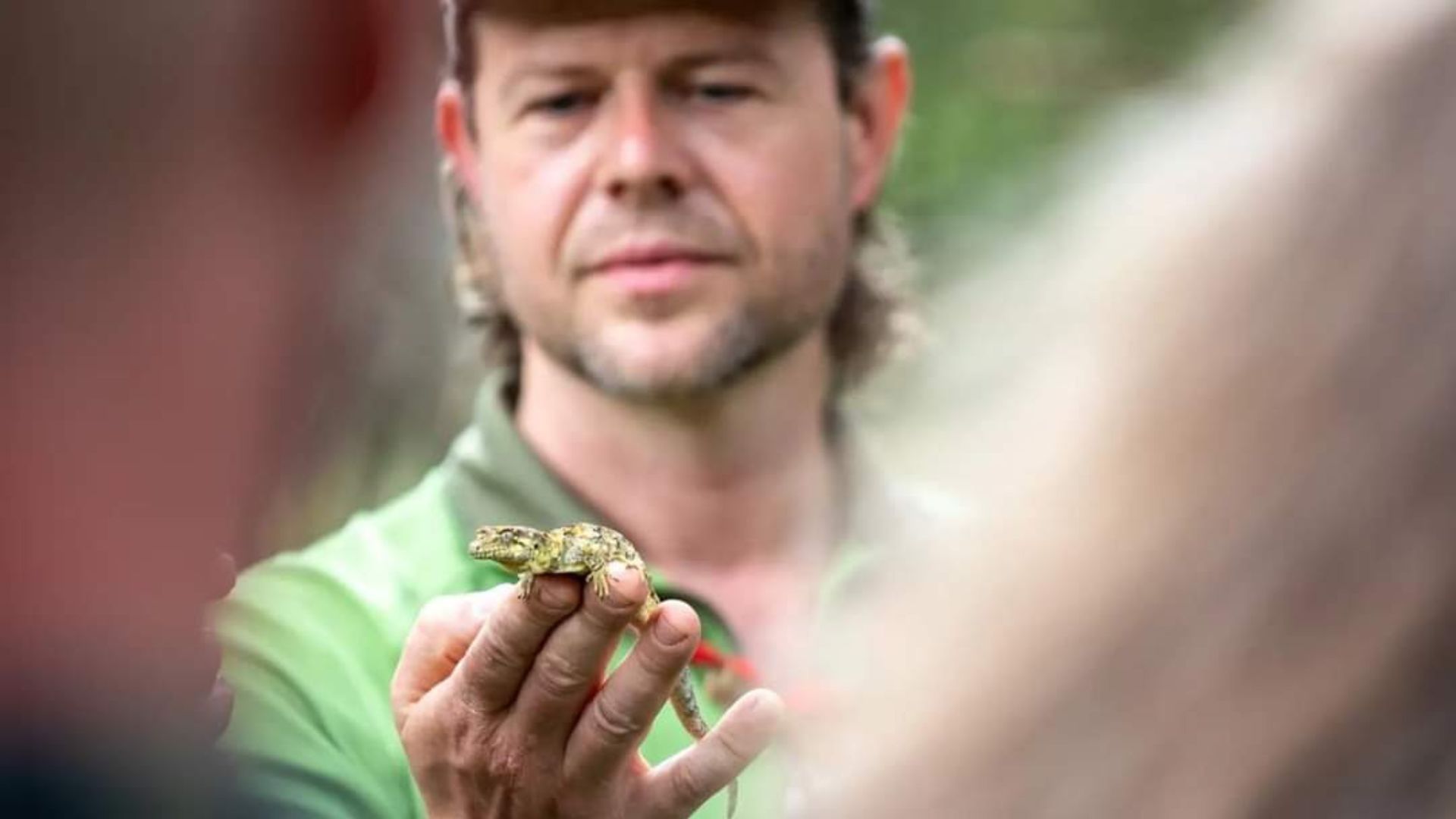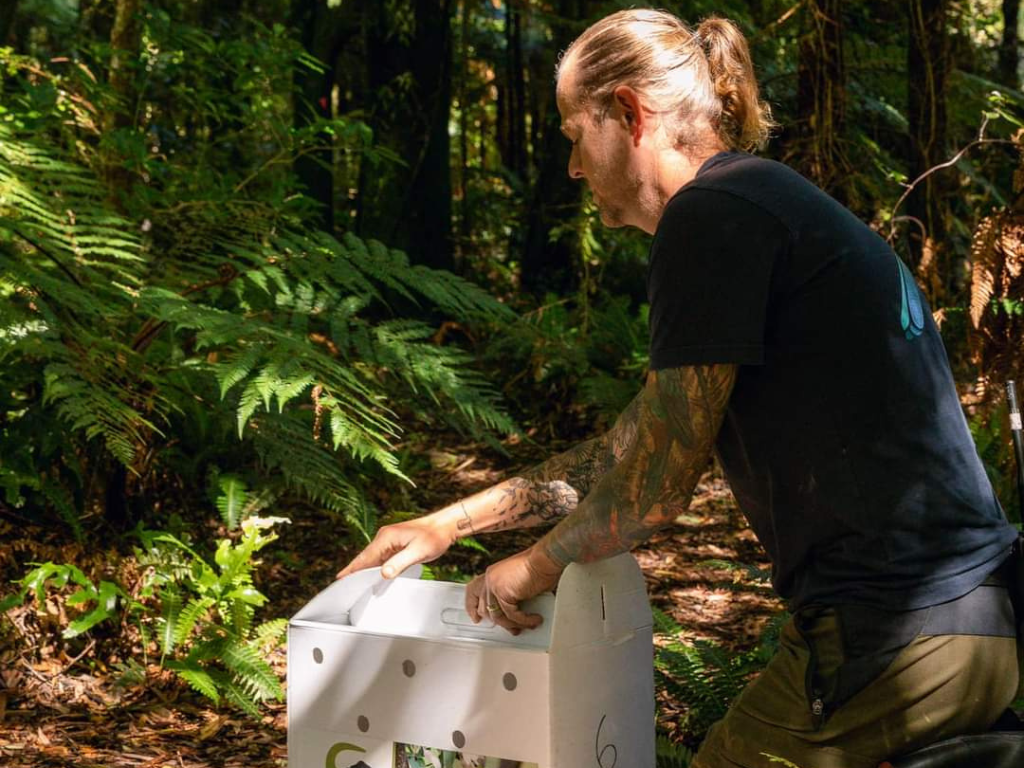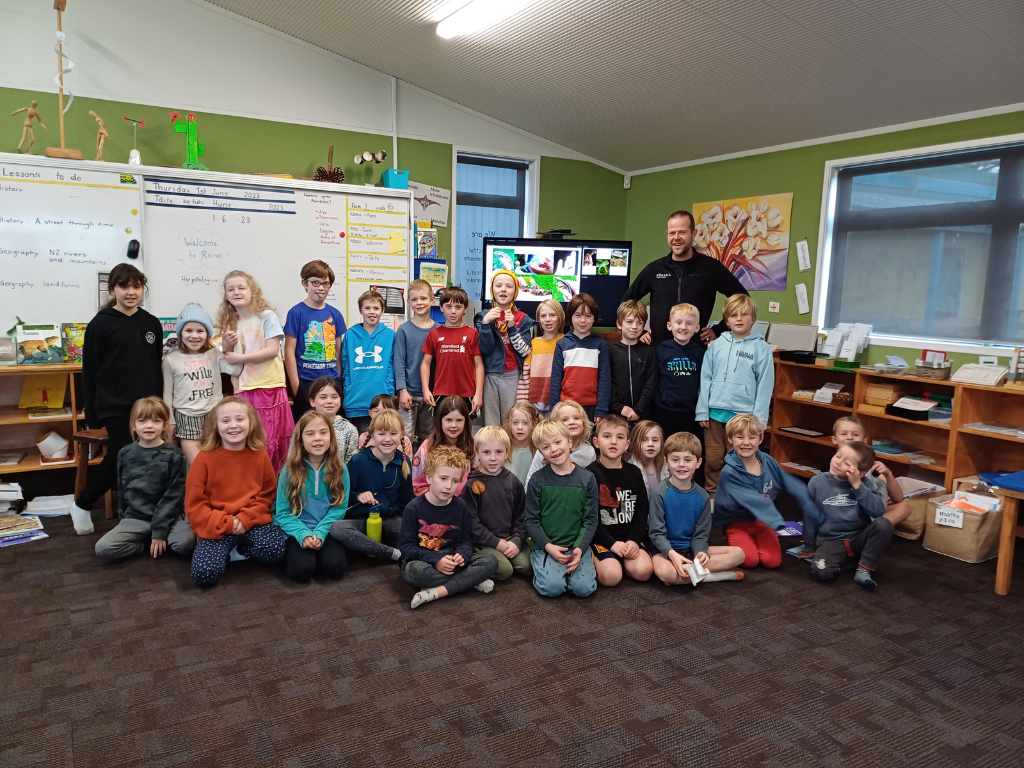For years, Reino Grundling was living two lives. He worked in the complicated world of international logistics by day, but his real passion was volunteering to trap and control possums, stoats, and rats across Wellington in his spare time.

International logistics was a career that spanned more than two decades of Reino’s life.
“It sounded really exciting,” Reino recalls his early exposure to the role. “Planes, trains, ships and all that sort of stuff.”
Until one day, it wasn’t that exciting at all
“I was talking to my wife one day about jobs. I told her: ‘I’m really good at this job, but there’s no enjoyment, there’s no passion.’ I didn’t get up in the morning thinking I’m gonna be the best logistics exporter,” Reino says.
It would be the calling of conservation and the support of his wife that ultimately convinced him to leave his long-time career behind to pursue his true passion.
But how do you step into a completely new career?
“When I looked at doing this life change, I would’ve been in my mid-thirties, and I thought age would be a barrier. But also qualifications – I imagined I would’ve had to have a zoological qualification or something you had to go to university for.”
After securing his first conservation role as a field ranger for Predator Free Wellington in 2019, Reino quickly found that wasn’t necessarily the case.
His years of experience in trapping, coupled with a willingness to learn from others, was valued by the group and a confidence boost.
“A big part of conservation is in practice and in-the-field skills you pick up through experience. So the more you get out there and do that, you’ll pick these things up.”
‘Go for it, boots and all’
After two years with Predator Free Wellington, Reino took another leap. He became a Department of Conservation biodiversity ranger in Wairarapa before accepting his current role as Conservation Breeding Team Leader at Pūkaha National Wildlife Centre at the beginning of this year.
He describes it as being “as close to a dream job as I could imagine” because it focuses more on breeding native species than on trapping their predators.
“Being even a small part of helping conserve native wildlife is pretty special and something I never thought I’d be able to get involved with,” he says.
And although his career in international logistics now seems like a previous life, the skills he learned are still coming in handy.

“Instead of moving a car from Auckland to Japan, it’s ‘how do we catch this bird and get it to Auckland Zoo?’”
For others considering switching to a conservation career, Reino believes volunteering is the best way.
“It’s a good gateway to meet the sort of people that can give you the experience to make that next step into conservation as a full-time career. Turn up and keep turning up,” he says.
“The past few years have been a learning curve, but it’s been exciting, rewarding, and worthwhile. I don’t regret a moment of it.”
From chameleons to kākā
A deep fondness and respect for wildlife started half a world away from Wellington in Reino’s native South Africa, where monkeys, leopards, snakes, and chameleons roam freely.
“Growing up in Africa, I could walk into the garden, look around and come back with a chameleon or a snake, and that could be a pet for a little while,” Reino says.

His family relocated to New Zealand when Reino was 16, and while the wildlife here is significantly different, he came to appreciate it in much the same way.
“The more I learned about the threats [native wildlife] face, and just how different the animals are here, the more interested I became. The more I learned, the more I wanted to help, conserve, and be involved in that process.”
In the coming years, the impact of possums and other pests on the environment hit home, quite literally. After buying a lifestyle block in Wellington’s rural community of Mākara, Reino became a “one-man band” trapping possums, including on his neighbour’s farm.
“I’d heard about possums and how bad they are, but never quite fully experienced what they’re like in overwhelming numbers – that made me go ‘holy hell’.”
It was the catalyst for Reino to start Pest Free South Mākara and involve more of the community to target not only pest animals but also plants.
Reino eventually moved back to Wellington with his wife before relocating to the Wairarapa, but continued volunteer trapping and helping several local community groups with advice and guidance.

